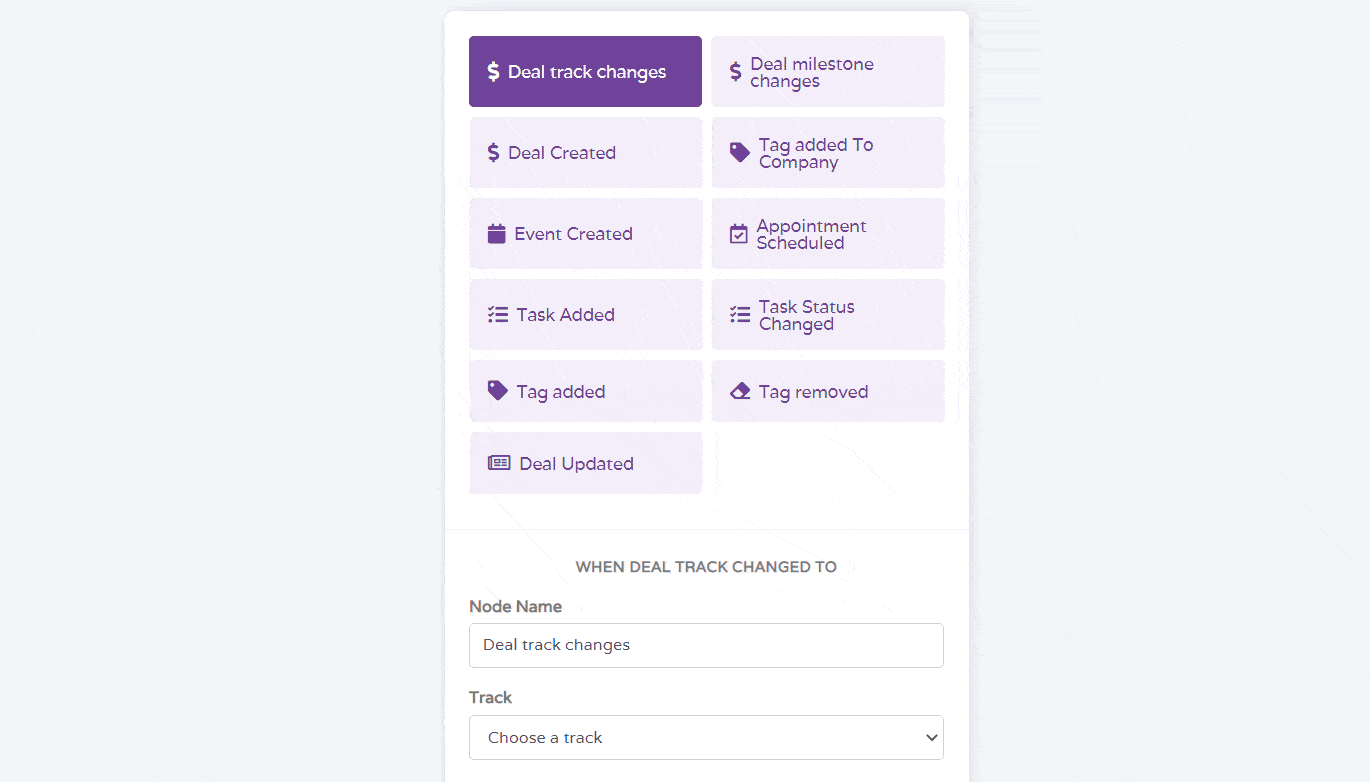There are over 1.6 million real estate agents in the US, all vying for the attention of potential buyers and sellers of real estate properties. Yet, a survey from Zillow shows that 40% of potential buyers and 64% of sellers prefer to work with real estate agents they have previously worked with or to settle for the first agent they contact.
In 2025, positioning yourself as the first agent contacted requires understanding the ever-changing real estate market, automation/AI tools, and a blend of online and offline marketing strategies.
From traditional open house events to virtual property tours streamed on social media, this blog post covers diverse real estate marketing strategies that can help you attract new buyers and potential sellers, build brand awareness, and stay positioned as a trusted expert.
Let’s get into it.
Table of Contents
8 Proven Real Estate Marketing Strategies

The right real estate marketing plan helps you attract people ready to sell and buy properties while also having a pool of qualified leads in your sales pipeline.
#1. Understanding the real estate market
Every successful real estate marketing plan is built on an understanding of the industry and target market. With buyers and sellers’ behaviour constantly evolving, realtors must stay informed to develop real estate marketing ideas that align with customer behavior, some of which include:
Older buyers are dominating the housing market
Since 2013, millennials have prided themselves as the highest percentage of homebuyers, accounting for 38% of the market. However, current data from the National Association of REALTORS® shows this percentage to have dropped to 29%, while that of boomers (60 – 78 years) grew to 42%.
In the words of NAR deputy chief economist and vice president of research, Jessica Lautz, “baby boomers have overtaken millennials – the largest U.S. population – to become the top generation of home buyers.”
However, what she found most striking was that half of boomers and 40% of the younger boomers were making home purchases entirely with cash, bypassing the need to take a mortgage.
This seemingly slight change in buyers’ age and purchasing behaviour influences the implementation of real estate sales strategy and marketing plans. It affects the choice of primary marketing channels and even the tone of marketing messages.
To attract older buyers, marketing collaterals designed for real estate marketing campaigns should do less of educating them about mortgages and more on communicating convenience, reliability, and low-maintenance.

Inventory level outgrows buyers’ demand
As of March 2025, Zillow records over 375,000 real estate listings. This is 32% more listings than February 2025.
Naturally, this increased real estate listing should mean more options for potential homebuyers and more sales. However, the reality is different, as shown by the 265,000 pending sales recorded. The reason for low sales is the high mortgage rate and the increasing median housing price.
In markets like these, specific niches such as Apartments for Sale in Sliema often attract distinct buyer interest, reflecting localized trends within the broader market.
In response, real estate companies must do more than list properties. The real estate marketer must understand the story behind every listed property and create marketing materials that tell that story.
Closing deals in an oversaturated market would involve implementing effective real estate marketing ideas that are highly targeted with reviewed pricing and incentives.
Decline in first-time home buyers
As a result of the high cost of owning houses, the real estate business has recorded a decline in first-time buyers. Currently, the market records only 24% of first-time buyers, which is the lowest record since 1981.
The first marketing response to these statistics may be to focus solely on customer retention strategies. Though this is a reasonable marketing idea, there is a better way to maximize this market condition.
By thoroughly understanding the challenges preventing first-time home purchases and optimizing marketing funnels to provide solutions, agents can position themselves as an authority and attract first-time buyers when they are ready to buy.
Here is an example. Since the major challenge to first-time real estate purchase is the growing cost of owning a house, real estate companies can partner with mortgage brokers and financial advisors to educate first-time buyers and connect them to programs that can ease the financial burdens of purchasing a house.
#2 Building a strong online presence
A survey shows that 36% of sellers discover their real estate agents online. While social media marketing is a great way to build an online presence, having a professional website is also crucial.
This is important because 84% of consumers view a business’ website as more credible than its social media presence.
Here is a checklist with which you can create or optimize your website:
Mobile-first design
Currently, 61.5% of internet traffic comes from mobile devices. By designing your website for mobile first, you create a seamless user experience for the growing number of people accessing websites through mobile devices.
This can generally lead to increased engagement and conversion.
Google, the leading search engine with about 16.4 billion searches per day, determines the ranking of websites from the mobile version of their website.
Therefore, if your website is not mobile-optimized, it has little chance of ranking highly on Google. This makes your website less visible to buyers or sellers searching for real estate services on Google.
High-quality visuals
Visual representation of real estate properties goes a long way in sparking a desire for the property. Data shows that properties with high-quality visuals sell 32% faster than those without.
So, by using high-quality visuals, realtors can create a positive first impression for website visitors, evoke emotions, generate new leads, and sell more real estate properties.
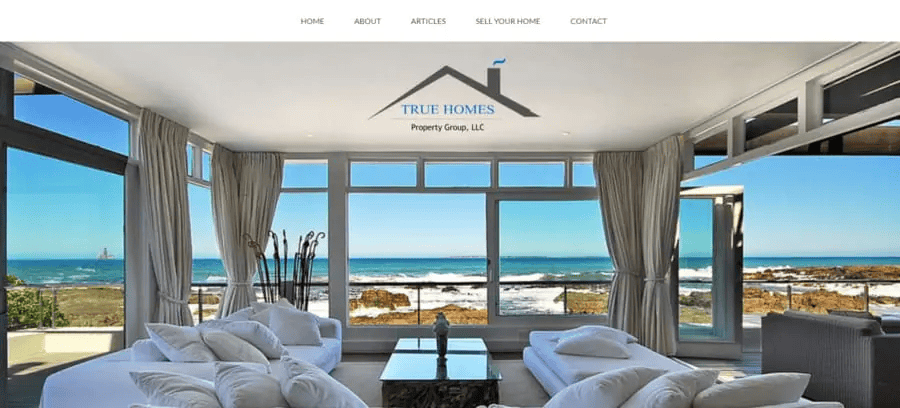
Here are some tips to implement:
- Make use of professional photography to get quality pictures of listed properties.
- Establish your personal brand by using a consistent color palette and style.
- Include pictures of the neighbourhood where the property is located.
- Highlight the best images of a property as the hero image on the listing page.
- Visuals are great, but they can slow down your web load speed. Compress images without reducing quality.
- Videos are also great visuals. Consider including short videos of real estate properties on your website.
Easy navigation
When visitors cannot navigate your website, they leave without learning more about your services. This increases your website’s bounce rate and adversely affects your conversion rate and ranking on search engines.
Therefore, ensure your website has easy-to-find and clear navigation buttons. Also, a search bar with filter features that help visitors find exact properties they are looking for.
Resources section
According to statistics gathered by Sixth City Marketing, content marketing generates 3x more leads and costs 60% less than outbound marketing.
A resources/blog section on the website is an effective way to educate and nurture potential clients and web visitors. It also helps build trust and increases the conversion of visitors into interested leads.
Integrate lead capture tools and CRM
Lead capture tools like forms and newsletter opt-ins are effective for capturing leads. Then, with a CRM system, you can analyze, organize, and nurture these leads.
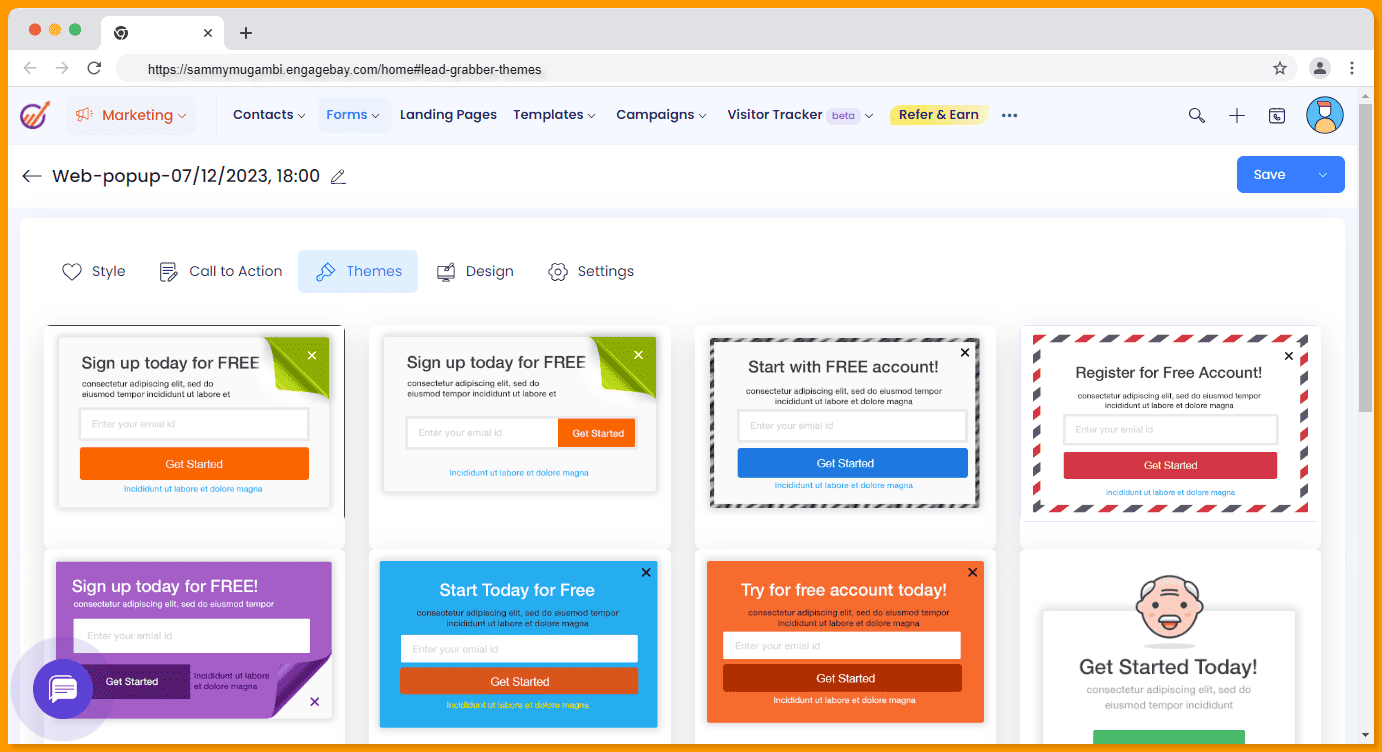
Client testimonials and clear CTAs
Buying, selling, or renting real estate involves significant financial costs. So, people prefer to do business with brands they can trust. Customers’ reviews and testimonials can serve as social proof to build trust with prospective clients.
These testimonials can be in written or video format and displayed on your online platforms.
#3 Implement Search Engine Optimization (SEO) Strategies
SEO is an excellent way to generate organic traffic and leads at a lower cost compared to paid advertising. SemRush shows how Boston Luxury Residential ranks for 5.1K keywords, outranking even top dogs like Zillow for specific keywords like Whittier Place Condos.
By ranking higher on Google search engine results (SERPs), Boston Luxury attracts potential clients who are ready to buy or rent Whittier Place condos and opens up new business possibilities of working with them.
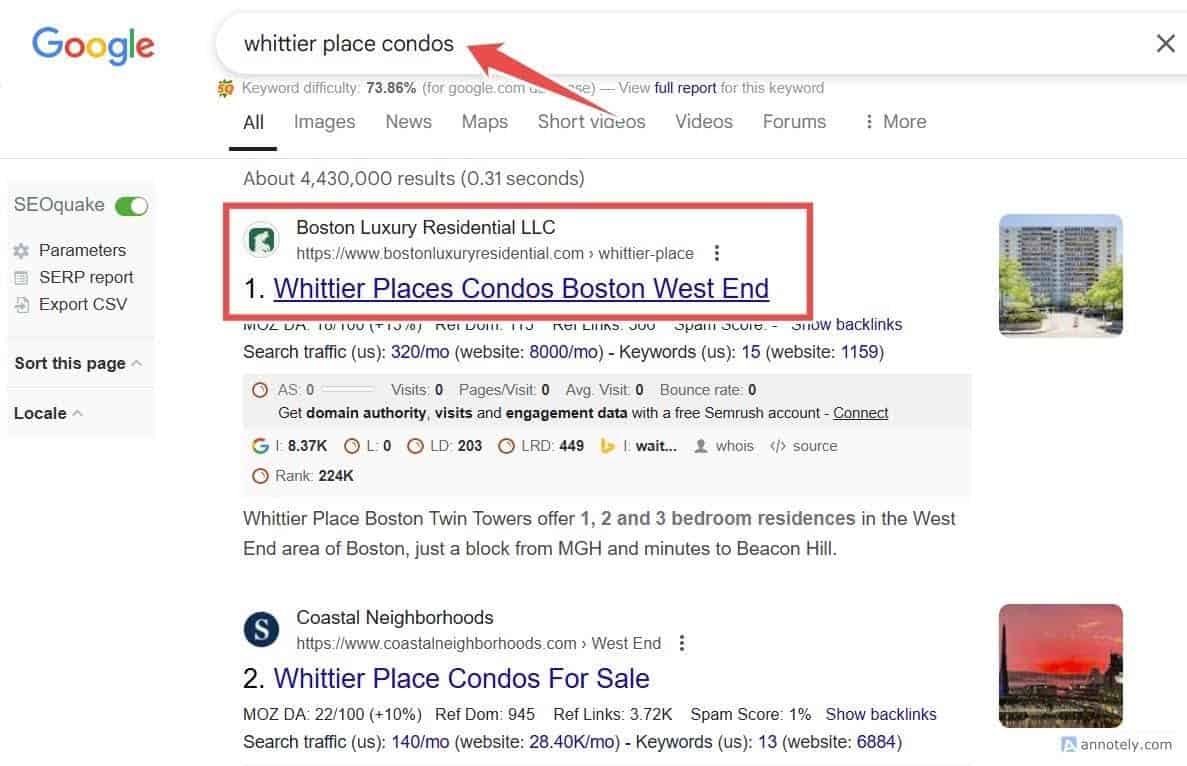
Here are SEO marketing strategies that can help your website achieve similar results.
Optimize business profile and professional website for local search
When local searches like real estate agents in ‘Seattle’ are made, Google’s Local Pack result, featuring three websites, shows up first. To save a spot in this local pack results and reach the local market you serve, you must have an optimized Google Business Profile.
Head over to the Google Business Profile Manager to create one. If your business already has this business profile, follow these tips to optimize it for local searches:
- Input all the relevant details about your business into the profile once verified.
- When filling out the description section, include relevant location-specific search keywords.
- List your real estate business in as many relevant directories as possible. Ensure that the name, address, and phone number (NAP) on the other listings are consistent with what is in your Google business profile.
- Link listing from other web directories back to your Google business profile. This generates backlinks for your Google business profile and increases the chances of it ranking among the first three local pack results.
- Include high-quality pictures of your team and properties. Also, request customers’ reviews and include them on your business page.
- Make a Google update post when there are newly listed properties.
Perform a technical SEO audit of your website
Use marketing tools like Google Search Console and Ahrefs to conduct an SEO audit of your website. This helps identify technical issues hurting your on-page search engine optimization efforts.
For instance, a web page that cannot be crawled will not pop up in search results, regardless of the page’s content quality or on-page SEO implemented. However, you can identify web pages not indexed by Google Search Console and go about fixing them.
Find keywords to drive leads
Conduct keyword research using tools like SEMrush to identify real estate-relevant keywords. Consider the search volume and keyword difficulty of each keyword identified. Go for keywords with low difficulty but high search volumes.
Also target long-tail keywords with a reasonable search volume. Use these keywords to in your blog content, property listing pages, or landing pages around each keyword. The main keyword should be used in title tags and meta descriptions.
#4 Social Media Marketing for Realtors
A survey by the National Association of REALTORS® shows that realtors using social media generate 46% of their leads from their social media marketing efforts.
By making targeted social media posts and advertising, these realtors use social media platforms to reach the 51% of millennials who prefer to hire agents with a social media presence, and the boomer generation.
Choosing the right social media channels
89% of the realtors involved in the survey use Facebook, 59% Instagram, 53% LinkedIn, and 26% YouTube. And it makes sense why. In real estate social media marketing, it is less about which channel is trending but more about where potential clients are per time.
Facebook boasts about 3 billion monthly active users, with 58% – 69% of this population being 50 – 65+ years old. This demographic falls within the boomer generation, currently leading homebuying. Using Facebook’s targeted advertising you can reach your target audience.
Instagram is the second most popular social media platform for real estate agencies, allowing realtors to do more than share new listing updates. With this picture-sharing social platform, you can tell a story of every listed property.
This helps connect emotionally with your target market, increase engagement, build a community, and generate new leads.
Making social media posts

After choosing the social media platforms for your real estate marketing, the next step to effective social media marketing is to show up consistently.
Your social media posts can be infographics, interactive polls that market your business in a fun way, or short educational videos that increase viewer engagement and showcase your expertise.
Influencer marketing efforts
Here, an individual promotes another brand’s products or services on their social media account. This endorsement from a third-party whose followers already trust increases reach and influences followers to take action.
A perfect example will be the realtor who partnered with a local influencer to host a live neighbourhood tour on social media. This brought a 20% increase in client inquiries.
#5 Email Marketing & Automation
Email marketing is an effective real estate marketing strategy, generating 40% more conversions than social media marketing. You can build relationships with buyers and sellers who have shown interest in your services and send out different email types, like the annual sales report email.
By automating property alerts or drip campaigns to maintain communication with clients over time, you increase efficiency and stay top of mind with potential clients. Using the email as a marketing channel involves these three stages:
Send out personalized campaigns to nurture leads
After building your email list, the next step is to segment the leads gathered based on demographics, geography, or behaviors. While this can be done using an email marketing platform, a CRM tool uses extensive customer data to further segment customers.
For instance, the email marketing campaign created for first-time buyers will differ from that sent to older buyers and will focus more on the current pain points and desires of first-time buyers. This personalizes the emails and increases the chances of conversion.
Set up marketing automation
Customer relationship management (CRM) tools help realtors automate repetitive marketing tasks to focus on more taxing duties. Real estate tasks that can be automated include lead segmentation, follow-up reminders for consultation or property viewing, personalized new property alerts, and so on.
#6 Paid Advertising
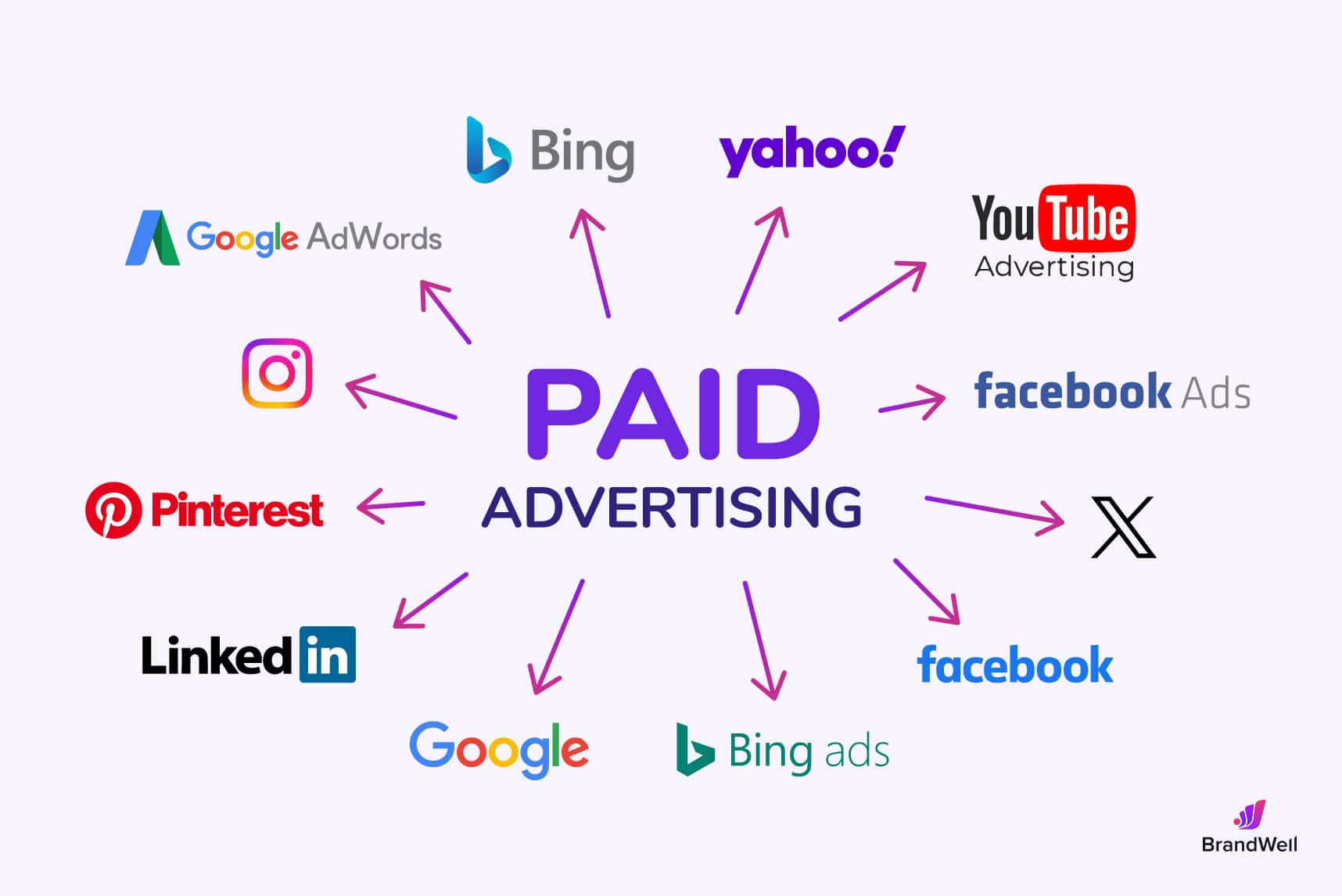
Organic marketing strategies are great, but paid real estate advertising ideas help agents to reach a wider range of their target audience faster.
Having a click-through rate of 6.42% to 7.45%, paid advertising not only increases reach but also proves effective in increasing the conversion rate.
Here are some tips for implementing an effective online advertising strategy across multiple channels:
Advertising tips for Facebook and Google
- When running ads on Facebook, use location-based targeting. Since realtors offer a location-based service, this feature helps you reach and convert more quality leads.
- Set up your Facebook ads in the best ad format. Use carousels from multiple listings and video formats to create an immersive tour experience.
- For Google Ads, make use of high-intent keywords to attract quality leads.
- Set up a Google Local Service Ads (LSA) to attract calls from the local market.
Retargeting advertising tips
Retargeting ads are an essential real estate marketing idea that can increase conversion by 150%. A Realtor can use them to convert viewers who did not take action immediately.
- Retargeting ads should be triggered within 24 – 72 hours of initial interaction, when the viewer can still remember interacting with your brand.
- Ensure that retargeting ads feature the exact properties a viewer engaged with or saved. This can be done by using Google remarketing tags and Facebook pixels on the listing page.
General advertising tips
- Focus on one audience segment when creating your ad. This could be first-time buyers or downsizers. Ensure your ad message and design resonate with that audience segment.
- Create a landing page for each ad group. This makes for more personalized messaging and increased conversion
- Create optimized profiles on top real estate websites that are already attracting leads. Use Premier Agent for Zillow or Connection Plus for Realtor.com to be featured along with their listings.
- Use CRM tools to manage generated leads and automate immediate follow-up actions or responses to lead inquiries.
#7 Virtual Tours & Video Marketing
Pictures and written descriptions are great, however, videos are more effective in creating an immersive experience for homebuyers. They offer a more detailed view of listed properties and spur the right buyer to book a viewing or make a purchase.
Using video marketing as a real estate marketing strategy has been shown to generate 118% more engagement for listed properties. Therefore, realtors seeking to record more conversions must include it in their real estate marketing plan.
For example, Real NYC Apartments used TikTok videos to attract over 1,000 potential clients monthly who make inquiries about their listed properties.
Some of the ways for you to use video in real estate marketing include:
Virtual property tours
Virtual property tours are interactive videos that offer a 3D view of real estate properties, allowing potential buyers or renters to explore the property as though they were physically present.
To make tours even more actionable, pair them with accurate floor plans. With tools like Giraffe360, you can easily generate virtual floor plans, which help buyers visualize the property layout and plan room usage.
This online viewing allows buyers to explore a property without visiting it. This way, clients can make decisions faster, and the real estate sales cycle is reduced.
To create a captivating virtual tour, use a professional camera, a virtual tour platform like EyeSpy360 or CloudPano, and a drone for large plots or properties. These virtual tours can be shared on property listing pages, home page, social media, or via emails to qualified leads.
Live streaming of open house events
An open house event is a public viewing event where potential buyers tour a property for sale without an appointment. It is an important event that connects realtors to potential buyers, aiding lead generation, market research, and increased visibility of listed properties.
Thanks to social media channels, marketers can take this event online to reach more potential clients through live streaming.
#8 Networking & Community Engagement
NAR records that over 40% of home buyers and sellers choose real estate agents based on referrals. This shows that word-of-mouth marketing is still a powerful form of marketing, especially for localized businesses that rely heavily on trust and referrals.
Networking and community engagement help attract a stream of referrals from your local community.
By hosting or sponsoring local events like a free buyer seminar, agents can position themselves as experts within their community, attract goodwill, and develop a positive brand perception.
An example is the ‘Black Men Buy Houses’ initiative founded by Park Homes. This initiative uses financial literacy education and real estate guidance to increase house ownership within the black community.
Beyond guiding prospective buyers through the entire home-buying process, realtors can connect their clients to related services or materials needed to settle into their homes. This can be done by partnering with other local businesses, like mortgage brokers and interior decorators.
Future Technological Trends in Real Estate Marketing
The real estate market is projected to grow at an annual rate of 4.8%. According to Sandeep Dave, the Chief Digital & Technology Officer at Global Commercial Real Estate Services, technology and data will play a big role in driving this growth.
Real estate marketers can explore new ways to reach and connect with potential clients by staying informed on technological trends. Some of these trends include:
AI-powered chatbots and virtual assistants
These tools improve customer support by promptly responding to the questions of potential clients, offering personalized property recommendations based on the chat, and qualifying leads for agents to focus on those ready to be closed.
For the real estate industry, lead response time makes a significant impact on lead conversion. Statistics show that leads contacted within 5 mins are 9x more likely to take desired action.
Yet about 44% of real estate sales reps have their hands too full to follow up promptly with leads. With these AI virtual assistants working round the clock, lead response time and conversion rate is increased.
Predictive analytics for personalization
Predictive analytics involves the use of machine learning and statistical models to analyze available data and predict future trends or outcomes.
Moreover, thanks to AI-powered reverse image search tools, users will be able to search for similar or exact real estate listings or interior designs. This can simplify the entire real estate search process, especially when potential clients only have an image as a reference.
A common application of this tool is in the analysis of customer or lead data. CRM systems use predictive analytics to analyze customers’ behaviors, provide actionable insights, and automate personalized marketing strategies.
Smart contracts and blockchain technology in real estate transactions
Smart contracts are secure contracts that execute an action automatically when contract terms are met. They are built on blockchain technology, which guarantees the security and transparency of transactions carried out on them.
A smart contract transaction is initiated when a purchase is made and the token ownership is transferred. Since transactions in blockchain technologies are immutable and decentralized, it increases trust and reduces fraud.
Another benefit of smart contracts is that the process is self-executing, reducing the need for third parties like brokers. It also makes it possible for investors to buy smaller shares of a property.
Key Takeaways
- Consumer behaviour in the real estate market is constantly evolving. To make real estate marketing ideas that align with these changes, realtors must stay informed and embrace new marketing technologies.
- The first step to building an online presence as a real estate agent is creating a professional website.
- Design your website to attract and convert buyers and sellers. Do this by using high-quality visuals, customer reviews, and SEO optimized content.
- Strategically use content across different channels–email, social media, and website–to build relationships and nurture leads.
- Use targeted paid ads and automation to generate and convert leads faster.
- Video testimonials and virtual tours are great ways to humanize your brand and build credibility.
- Community engagement is still an effective real estate marketing strategy today. By hosting or sponsoring events, you attract referrals.
Conclusion
Marketing for real estate agents in 2025 has gone beyond open house events and basic digital marketing strategies. To stand out and effectively market their services, real estate agents must understand their target market, stay on top of industry trends, and embrace new technologies in implementing real estate marketing strategies.
The real estate marketing ideas shared in this blog post contain both insights from industrial trends and technologies to employ. However, implementing them is what makes a difference in your real estate business.
Look through the strategies and pick any three you can start implementing today. It may be to simply create a Google business profile, or optimize your website and integrate a CRM tool, or even live-stream your next open house event. Regardless of what you choose, by consistently implementing and optimizing the process, you will be one step ahead, reaching more people, attracting quality leads, and closing more deals.

